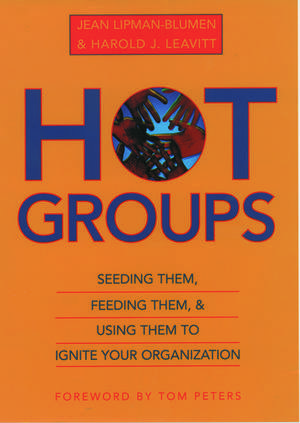Hot Groups: Seeding Them, Feeding Them, and Using Them to Ignite Your Organization
Autor Jean Lipman-Blumen, Harold J. Leavitten Limba Engleză Hardback – 17 iun 1999
Preț: 270.18 lei
Preț vechi: 297.61 lei
-9% Nou
Puncte Express: 405
Preț estimativ în valută:
51.71€ • 53.78$ • 42.69£
51.71€ • 53.78$ • 42.69£
Carte tipărită la comandă
Livrare economică 03-09 aprilie
Preluare comenzi: 021 569.72.76
Specificații
ISBN-13: 9780195126860
ISBN-10: 0195126866
Pagini: 320
Dimensiuni: 162 x 241 x 27 mm
Greutate: 0.57 kg
Editura: Oxford University Press
Colecția OUP USA
Locul publicării:New York, United States
ISBN-10: 0195126866
Pagini: 320
Dimensiuni: 162 x 241 x 27 mm
Greutate: 0.57 kg
Editura: Oxford University Press
Colecția OUP USA
Locul publicării:New York, United States
Notă biografică
Jean Lipman-Blumen and Hal Leavitt have worked together for many years. Jean is the Thornton F. Bradshaw Professor of Public Policy and Professor of Organizational Behavior at the Peter F. Drucker Graduate School of Management at Claremont Graduate University. Co-director of The Institute for Advanced Studies in Leadership, she has served as Director of the Women's Research Program at the National Institute of Education and as special advisor to the domestic policy staff of the Carter administration. Her recent book The Connective Edge received wide acclaim. Hal is the Kilpatrick Professor Emeritus at the Stanford Graduate School of Business, where he directed the Stanford Executive Program. He has also taught at INSEAD in France and London Business School. He is the author of Corporate Pathfinders and Managerial Psychology, now in its 5th edition and 18th language.














